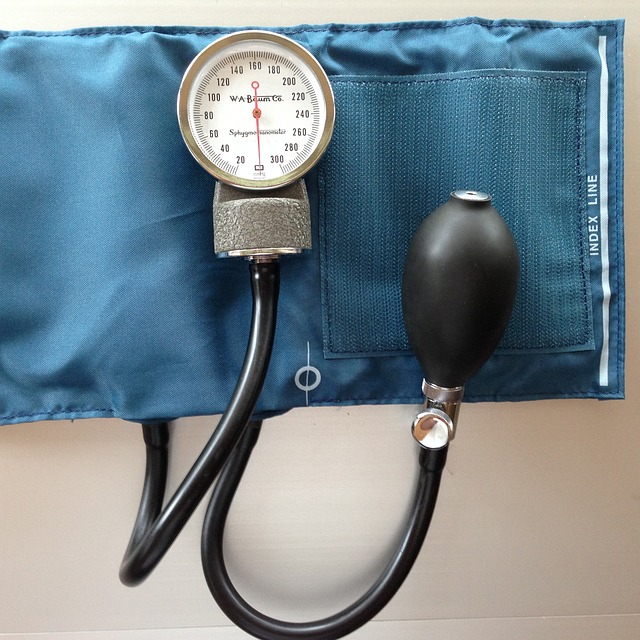The UK Kidney Blood Test is a vital tool for monitoring cholesterol levels and assessing cardiovascular health. High LDL (bad) cholesterol, identifiable through this test, increases risks of heart disease and strokes. By understanding total cholesterol levels (ideal below 5 mmol/L), individuals can manage their health with dietary adjustments, exercise, and medication if needed, thereby reducing cardiovascular risks.
Keep an eye on your cholesterol levels with simple UK kidney blood tests. These comprehensive assessments go beyond traditional measures, offering insights into your cardiovascular health. Learn how these tests monitor LDL, HDL, and triglycerides – crucial components of your cholesterol profile. Discover the importance of managing cholesterol for heart health and explore actionable steps to interpret results and maintain optimal levels based on your UK kidney blood test findings.
- Understanding Cholesterol and Why It Matters
- How UK Kidney Blood Tests Help Monitor Cholesterol
- Interpreting Results and Maintaining Healthy Levels
Understanding Cholesterol and Why It Matters
Cholesterol is a waxy substance found in all cells in the body, playing a crucial role in maintaining good health. It’s essential for building cell membranes and producing hormones. However, high cholesterol levels, particularly LDL (low-density lipoprotein) or ‘bad’ cholesterol, can lead to serious health issues. This is because excess cholesterol builds up in the arteries, forming plaques that restrict blood flow, a condition known as atherosclerosis. Over time, this can increase the risk of heart disease and strokes, which are leading causes of death in the UK.
Regularly checking cholesterol levels through simple blood tests like a UK kidney blood test is vital for maintaining optimal health. These tests measure total cholesterol, HDL (high-density lipoprotein) or ‘good’ cholesterol, LDL cholesterol, and sometimes triglycerides. By understanding your cholesterol profile, you can make informed decisions about lifestyle changes or medical interventions to manage levels effectively and reduce the risk of cardiovascular events.
How UK Kidney Blood Tests Help Monitor Cholesterol
In the UK, kidney blood tests play a vital role in monitoring cholesterol levels. These comprehensive assessments provide healthcare professionals with valuable insights into a patient’s overall cardiovascular health. By analysing various components within the blood sample, including LDL (low-density lipoprotein), HDL (high-density lipoprotein), and total cholesterol, medical experts can identify potential risks associated with elevated cholesterol. Regular UK kidney blood tests are particularly beneficial for individuals with kidney disease or those at a higher risk of cardiovascular events, as they enable early detection and management of abnormal cholesterol levels.
Through these tests, healthcare providers can track changes in cholesterol profiles over time, adjust treatment plans accordingly, and offer personalised advice to patients. This proactive approach is crucial in reducing the risk of heart disease and stroke, which are significant health concerns in the UK. By incorporating UK kidney blood tests into routine medical check-ups, individuals can take a proactive step towards maintaining optimal cholesterol levels and overall well-being.
Interpreting Results and Maintaining Healthy Levels
After your UK Kidney Blood Test, understanding the results is key. Total cholesterol levels are measured in millimoles per litre (mmol/L). The ideal range for total cholesterol is below 5 mmol/L. If your result falls between 5 and 7 mmol/L, this is considered borderline high, and lifestyle changes may be recommended to lower it. Any reading above 7 mmol/L indicates high cholesterol, which increases the risk of heart disease.
Maintaining healthy cholesterol levels involves a combination of diet, exercise, and sometimes medication. A balanced diet, low in saturated fats and trans fats, can significantly impact your cholesterol profile. Regular physical activity also plays a crucial role in managing cholesterol; it helps increase HDL (good) cholesterol while lowering LDL (bad) cholesterol. If lifestyle changes are not enough, healthcare professionals may prescribe medications to help control cholesterol levels.
Regularly monitoring cholesterol levels through simple UK kidney blood tests is an essential step towards maintaining heart health. Understanding your results enables you to make informed decisions about your diet and lifestyle, ultimately helping to keep cholesterol in check. By taking proactive measures, you can significantly reduce the risk of cardiovascular issues and enjoy a healthier, longer life.
